Life & Faith
Holy, Glorious Prophet Elijah
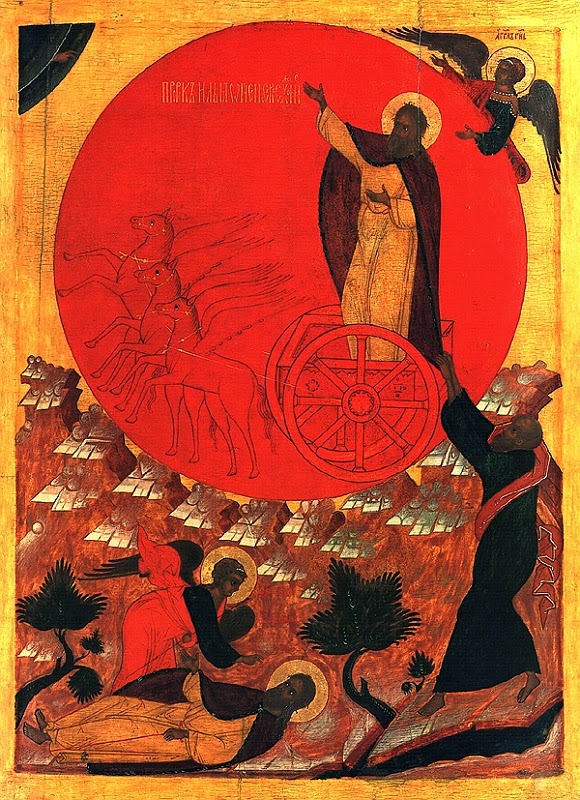 The Holy Prophet Elijah is one of the greatest of the prophets and the first dedicated to virginity in the Old Testament. He was born in Tishba of Gilead into the Levite tribe 900 years before the Incarnation of the Word of God.
The Holy Prophet Elijah is one of the greatest of the prophets and the first dedicated to virginity in the Old Testament. He was born in Tishba of Gilead into the Levite tribe 900 years before the Incarnation of the Word of God.
Saint Epiphanius of Cyprus gives the following account about the birth of the Prophet Elijah: “When Elijah was born, his father Sobach saw in a vision angels of God around him. They swaddled him with fire and fed him with flames.” The name Elijah (the Lord’s strength) given to the infant defined his whole life. From the years of his youth he dedicated himself to the One God, settled in the wilderness and spent his whole life in strict fasting, meditation and prayer. Called to prophetic service, which put him in conflict with the Israelite king Ahab, the prophet became a fiery zealot of true faith and piety.
Bishop Mardarije (Uskokovic)
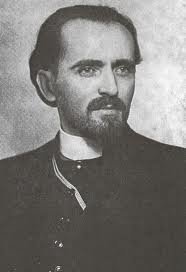 The First Serbian Bishop of America and Canada
The First Serbian Bishop of America and Canada
Bishop Mardarije was born in Podgorica on December 22, 1889, his father, Pero, being a tribal captain and mother Jela, nee Bozovic. He finished elementary school in Cetinje where he started high school, continuing in Belgrade. Leaving high school in his fifth year, he went to Studenica Monastery. In 1906, with the blessing of Bishop Sava (Barac) of Zica, he took monastic vows and was ordained a deacon. He graduated from the Seminary in Kisenjev where a collection of his sermons was published. From here he went to St. Petersburg, graduating from the Theological Academy in 1916.
Is the Apostle’s Fast “Easier”?
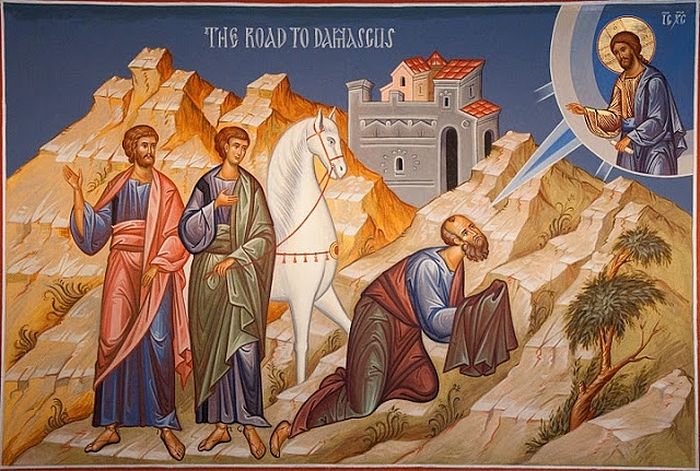 The Apostle’s asceticism and the “vacation season”
The Apostle’s asceticism and the “vacation season”
The Apostles’ fast goes back to the earliest times of the Christian Church. As we know, it was established when in both Constantinople and Rome, churches were built in honor of the chief apostles Peter and Paul. The sanctification of the Constantinople church was performed on the feast day of these apostles, June 29 (according to the old calendar; that is, July 12 according to the new), and from that time on this day has become particularly solemn in both the East and West. This is the day that the fast ends. It’s beginning is moveable, depending upon the celebration of Pascha; therefore the length of the fast varies from six weeks to a week and a day [if observed according to the Julian Church calendar.—Ed.].
Martyr Justin the Philosopher and those with him at Rome
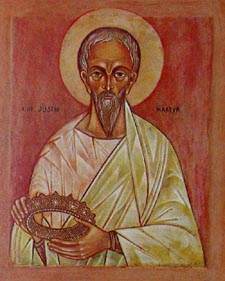 The Holy Martyr Justin the Philosopher was born around 114 at Sychem, an ancient city of Samaria. Justin’s parents were pagan Greeks. From his childhood the saint displayed intelligence, love for knowledge and a fervent devotion to the knowledge of Truth. When he came of age he studied the various schools of Greek philosophy: the Stoics, the Peripatetics, the Pythagoreans, the Platonists, and he concluded that none of these pagan teachings revealed the way to knowledge of the true God.
The Holy Martyr Justin the Philosopher was born around 114 at Sychem, an ancient city of Samaria. Justin’s parents were pagan Greeks. From his childhood the saint displayed intelligence, love for knowledge and a fervent devotion to the knowledge of Truth. When he came of age he studied the various schools of Greek philosophy: the Stoics, the Peripatetics, the Pythagoreans, the Platonists, and he concluded that none of these pagan teachings revealed the way to knowledge of the true God.
Once, when he was strolling in a solitary place beyond the city and pondering about where to seek the way to the knowledge of Truth, he met an old man. In the ensuing conversation he revealed to Justin the essential nature of the Christian teaching and advised him to seek the answers to all the questions of life in the books of Holy Scripture. “But before anything else,” said the holy Elder, “pray diligently to God, so that He might open to you the doors of Light. No one is able to comprehend Truth, unless he is granted understanding from God Himself, Who reveals it to each one who seeks Him in prayer and in love.”
Message by Ecumenical Patriarch Bartholomew for World Oceans Day
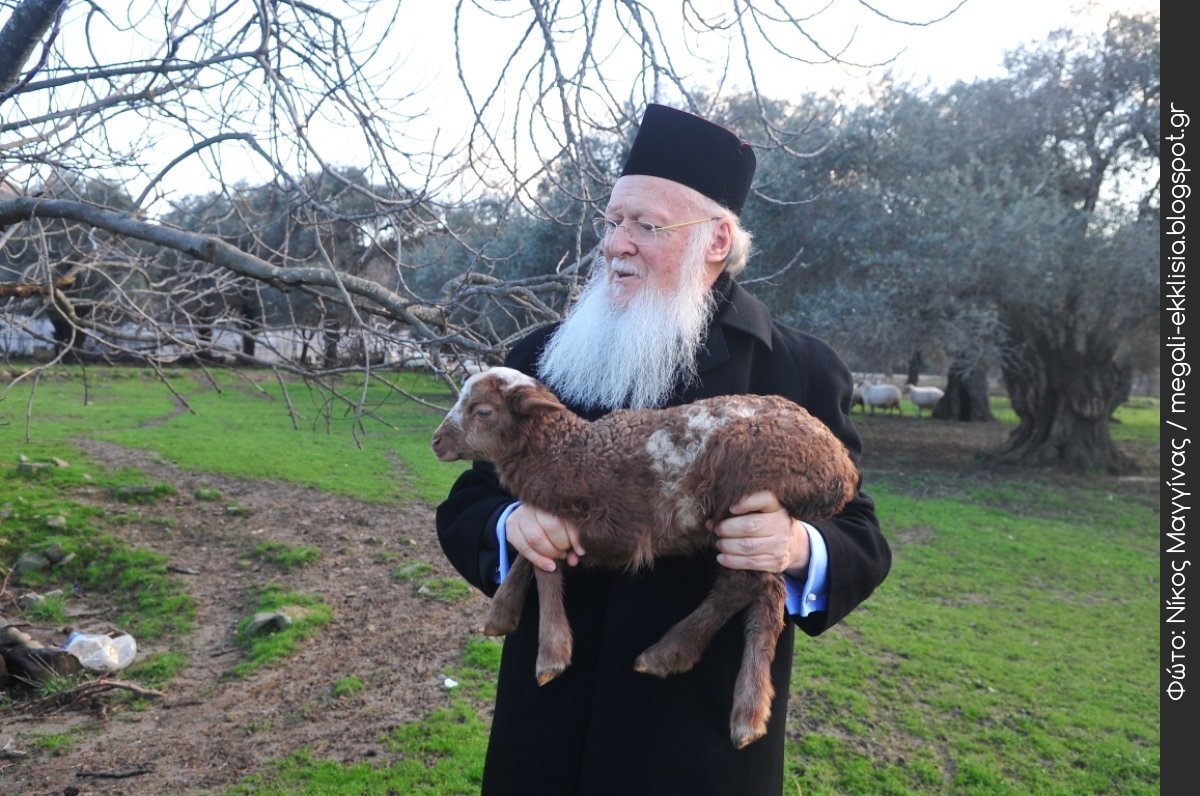 Hurt not the earth, neither the seas nor the trees. (Rev. 7.3)
Hurt not the earth, neither the seas nor the trees. (Rev. 7.3)
World Oceans Day celebrates one of the most precious gifts of our Creator, a gift that we are called to preserve and conserve.
Over the past two decades, the Ecumenical Patriarchate has highlighted the deteriorating condition of the world’s oceans. Now, more than ever, it is crucial to respect and protect this invaluable and inalienable resource of our planet, which is a unique source of nurture and biodiversity.
Pentecost: The Descent of the Holy Spirit
 In the Old Testament Pentecost was the feast which occurred fifty days after Passover. As the passover feast celebrated the exodus of the Israelites from the slavery of Egypt, so Pentecost celebrated God’s gift of the ten commandments to Moses on Mount Sinai.
In the Old Testament Pentecost was the feast which occurred fifty days after Passover. As the passover feast celebrated the exodus of the Israelites from the slavery of Egypt, so Pentecost celebrated God’s gift of the ten commandments to Moses on Mount Sinai.
In the new covenant of the Messiah, the passover event takes on its new meaning as the celebration of Christ’s death and resurrection, the “exodus” of men from this sinful world to the Kingdom of God. And in the New Testament as well, the pentecostal feast is fulfilled and made new by the coming of the “new law,” the descent of the Holy Spirit upon the disciples of Christ.
When the day of Pentecost had come they were all together in one place. And suddenly a sound came from heaven like the rush of a mighty wind, and it filled all the house where they were sitting. And there appeared to them tongues as of fire, distributed as resting upon each one of them. And they were all filled with the Holy Spirit . . . (Acts 2.1–4).

